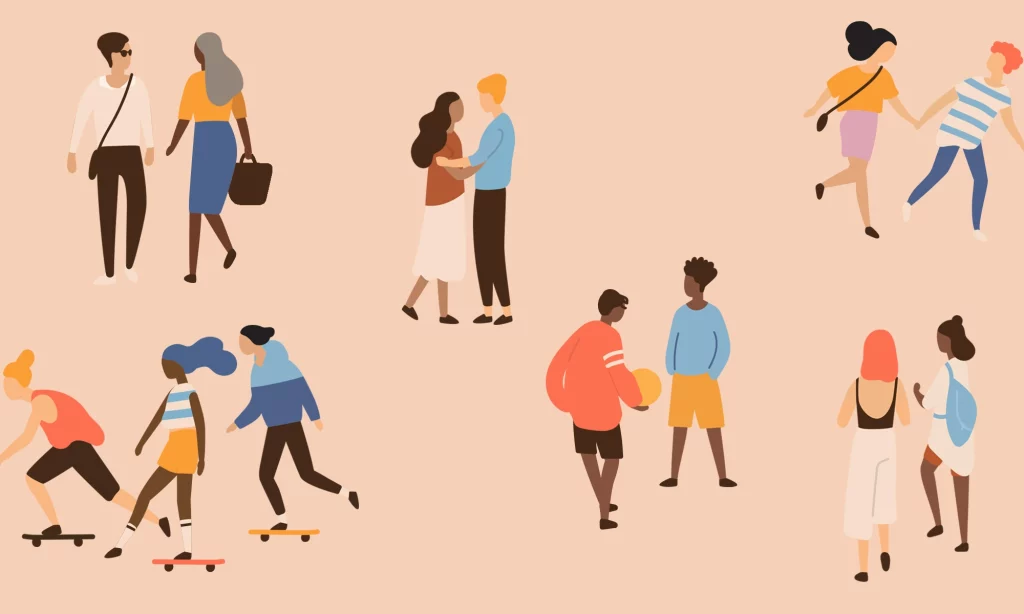
What do shared positive experiences shape my relationship?
Shared positive experiences within a relationship make up emotional capital. Emotional capital is the positive emotional investment into one’s relationship and can be thought of as accumulated “relationship wealth” made up of a set of positive shared emotional experiences1.
Why is emotional capital important for a relationship?
Emotional capital can act as a buffer, so those with more emotional capital will be seemingly less affected by potentially destructive relationship events and behaviors. In fact, emotional capital may even encourage partners to exhibit more pro relationship behaviors even in response to negative partner behaviors. On the contrary, relationships that have low amounts of emotional capital will be more affected by conflict or potentially destructive relationship events and behaviors. They are less likely to engage in pro relationship behaviors in times of adversity and are therefore less likely to feel motivated to work through these adversities.2
How does the theory of emotional capital relate to Rusbult’s commitment model?
The emotional capital perspective relates Rusbult’s commitment model in several ways. Both of the theories acknowledge the importance of factors that contribute to commitment in relationships. Rusbult’s model focuses specifically on satisfaction, investment, and lack of alternatives as key determinants of commitment. Emotional capital theory emphasizes emotional resources that individuals invest in their relationships as a key determinant of commitment.
How should I respond to my partner disclosing positive events?
Capitalization is the term for support that is received in response to disclosed positive events in which additional benefits are experienced as a function of sharing that event. There are four types of capitalization: active- constructive (enthusiastic, vocal support), passive- constructive (support is subdued but still positive) active- destructive (actively critiquing/ minimizing the event) and passive- destructive (ignoring the event). To benefit your relationship, it is best to respond in active or passive constructive ways.
How are these two things similar? Different?
Both emotional capital and capitalization emphasize the importance of investing in emotional connections and fostering positivity within relationships. While they are intertwined in many ways, the two theories have distinct differences. Emotional capital encompasses a broader range of emotional resources that individuals bring to a relationship, while capitalization specifically refers to the process of responding positively to each other’s successes and positive experiences within the relationship. Emotional capital therefore actually acts as a foundation for effective capitalization.
What are possible implications for the findings from the study on emotional capital for individuals and couples facing relationship challenges during times of stress, such as the COVID-19 pandemic?
One potential implication of this study’s findings is the importance of investing in emotional capital early in relationships. Building a foundation of trust, intimacy, and support can provide couples with resilience. During times of stress, such as the pandemic, a strong emotional bond can help couples navigate uncertainties and maintain a sense of connection.
Another possible implication is the importance of recognizing and addressing negative and destructive relationship behaviors, such as passive- destructive support as these negative interactions can erode emotional capital and diminish relationship satisfaction.
- Brooke C. Feeney and Edward P. Lemay, “Surviving Relationship Threats,” Personality and Social Psychology Bulletin38, no. 8 (April 24, 2012): 1004–17, https://doi.org/10.1177/0146167212442971. ↩︎
- Courtney L. Gosnell and Kendra Dascano, “Effects of the Coronavirus Pandemic on Perceived Capitalization Support Provision and Receipt,” Social and Personality Psychology Compass 17, no. 9 (June 22, 2023), https://doi.org/10.1111/spc3.12824. ↩︎
Sophia — this is such a great post! I found the comparison between emotional capital and Rusbult’s commitment model particularly fascinating, as it underscores the multifaceted nature of commitment in relationships. I wonder how these theories can be applied in long-distance relationships, where shared experiences and daily interactions are limited. Given the constraints of physical distance, how can couples effectively build and maintain emotional capital? I would be interested in seeing if there is research on specific strategies that long-distance couples can employ to foster positive shared experiences and ensure their relationship thrives despite the geographical separation.